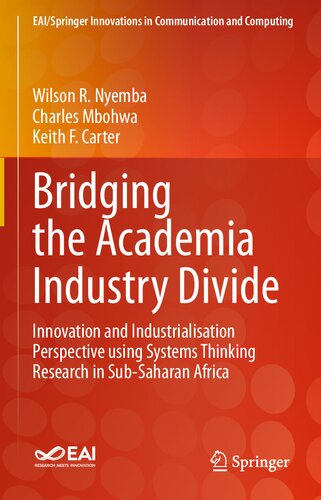

Most ebook files are in PDF format, so you can easily read them using various software such as Foxit Reader or directly on the Google Chrome browser.
Some ebook files are released by publishers in other formats such as .awz, .mobi, .epub, .fb2, etc. You may need to install specific software to read these formats on mobile/PC, such as Calibre.
Please read the tutorial at this link: https://ebookbell.com/faq
We offer FREE conversion to the popular formats you request; however, this may take some time. Therefore, right after payment, please email us, and we will try to provide the service as quickly as possible.
For some exceptional file formats or broken links (if any), please refrain from opening any disputes. Instead, email us first, and we will try to assist within a maximum of 6 hours.
EbookBell Team

4.3
28 reviewsThis book is the result of years of research following a realization of the mismatch of engineering skills produced by universities and those that industry required, based on the situation in Sub-Saharan Africa, equally applicable to other regions in Africa and indeed worldwide. The book is meant to assist engineering academics and engineers in industry to build capacity and cope with the dynamic trends in technology brought on by the 4th Industrial Revolution and to prepare for the 5th Industrial Revolution, an era predicted to be dominated by critical and system thinkers with creative and innovative skills as basic necessities. The book is also useful for policy-making researchers in academia, industrial and public sector researchers, and implementers in governments that provide required funding for the development of human resources and skills. The book primarily consists of the novel research and innovation approaches of modelling and building systems thinking sub-models which were ultimately integrated into the Universal Systems Thinking (UST) model aimed at improving the quality of engineers and engineering practice. The initiatives in this book include strategies for bridging the gap between industry and academia through systems thinking research. The book provides information on how to model, simulate, adjust and implement integrated systems thinking approaches to engineering education and training for capacity building and sustainability. The book also covers approaches to address research gaps and mismatch of skills while capitalizing on the successes of several projects carried out and supported by the Royal Academy of Engineering over the years.